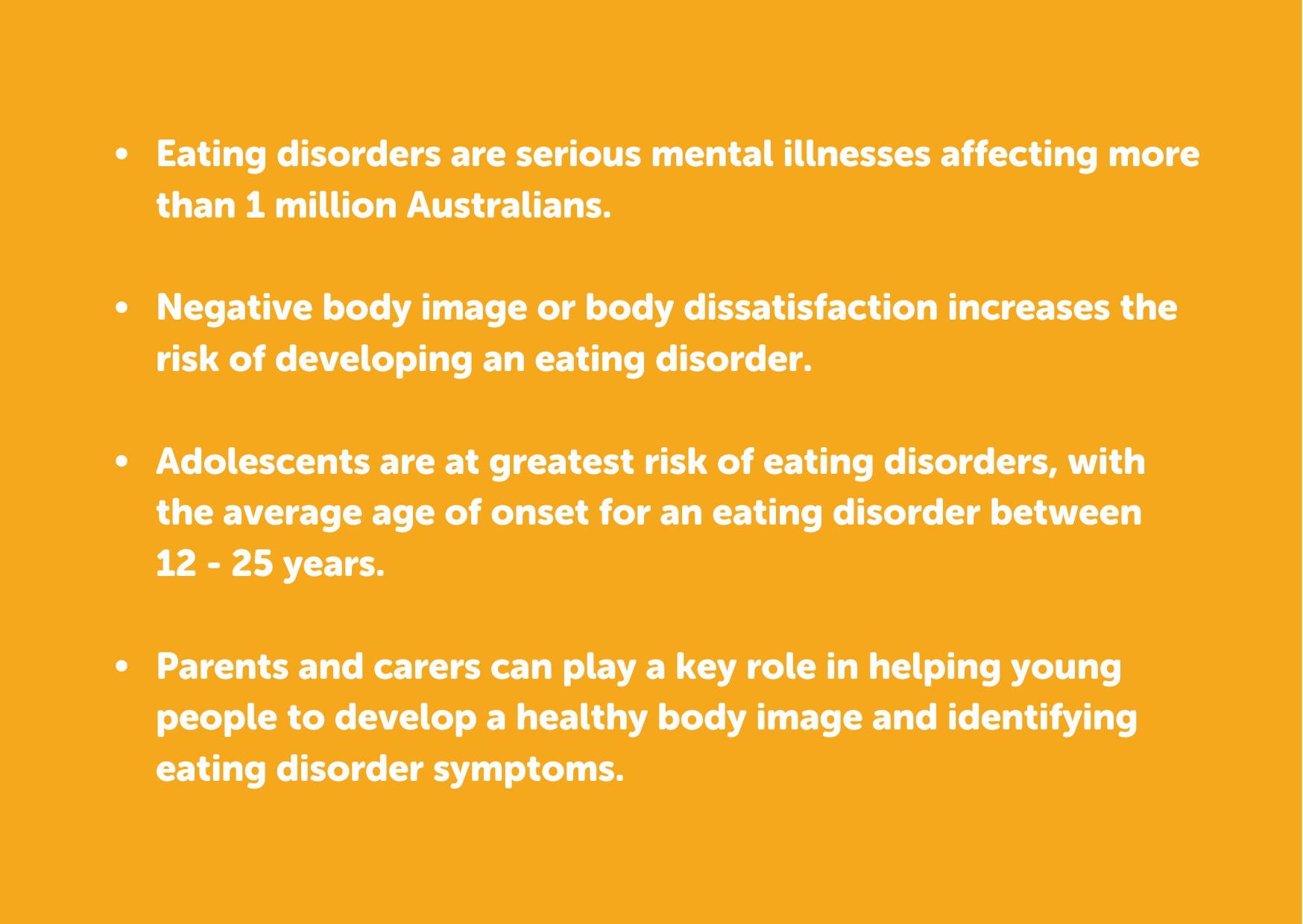
Health
Warning signs your child may be struggling with body image
31 Aug, 2022
InsideOut for Eating Disorders is encouraging parents and caregivers concerned their children might be struggling with body image to check in with their loved ones and reach out for support.
Body Image and Eating Disorders Awareness Week (BIEDAW) is a national week to raise awareness of body image concerns and eating disorders.
InsideOut Institute Director Sarah Maguire says an open conversation with a young person can be life changing.
“We know that negative body image is a significant concern for many young people. Negative body image or body dissatisfaction increases the risk of developing eating disorders, which are serious mental illness affecting more than one million Australians,” said Associate Professor Maguire.
“Adolescents are at greatest risk of eating disorders, with the average age of onset for an eating disorder between 12 - 25 years, so if you are concerned a young person may be struggling with body image, it’s important to have the conversation.”
There are several warning signs that a young person may be struggling with body image. For example, engaging in body checking behaviours such as frequent weighing; over-analysing body shape and appearance in conversation; or making frequent trips to the mirror to “check” oneself and monitor and/or critique self-image.
A/P Maguire says there may also be topics of conversation which raise concern – especially those that place significant emphasis on shape or weight.
"You might notice that a young person may idealise certain body shapes and continually compare themselves to these. They might comment frequently about weight or shape. You might also notice a change in some behaviours related to controlling shape/weight such as increased exercise use, some fussiness or restriction around food or changes in mood or anxiety. These are all signs that it’s time to talk.”

A/P Maguire says the initial conversations with a young person you think may be struggling with body image can be challenging but it’s important to be transparent.
“If you are concerned that a young person is struggling with body image, engage in an open, non-judgemental conversation with them about the behaviours you have noticed and why you are concerned. For example, if you notice that your child is spending excessive amounts of time using technology to compare their body to others, it is worth talking this over, and brainstorming ways to reduce or alter technology use, and address why they think it is necessary to do this.”
If the young person continues to struggle with body image despite additional support or denies the seriousness of their body image struggles, care givers are encouraged to seek advice and support from a General Practitioner (GP).
“A GP can act as a neutral third party in facilitating transparent conversations about your concerns and provide information about body image and the potential negative impacts. Additionally, the GP can conduct a general physical and mental health assessment and make recommendations for professional support if needed.”
There are also other supports available and confidential Helplines:
• The Butterfly National Helpline 1800 ED HOPE (1800 33 4673)
• Kids Helpline: 1800 55 1800